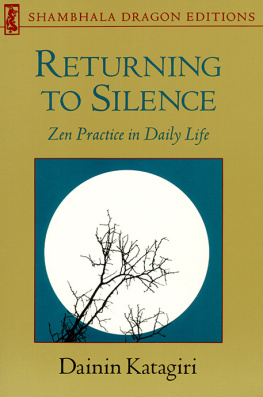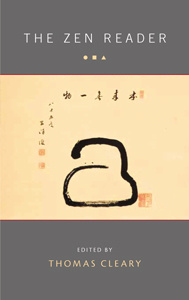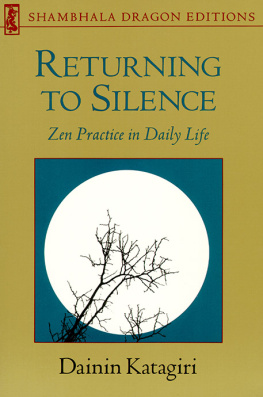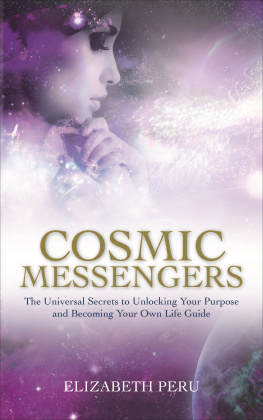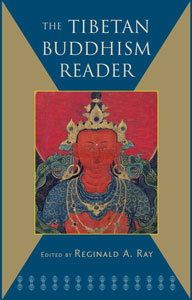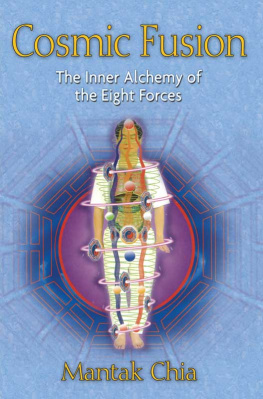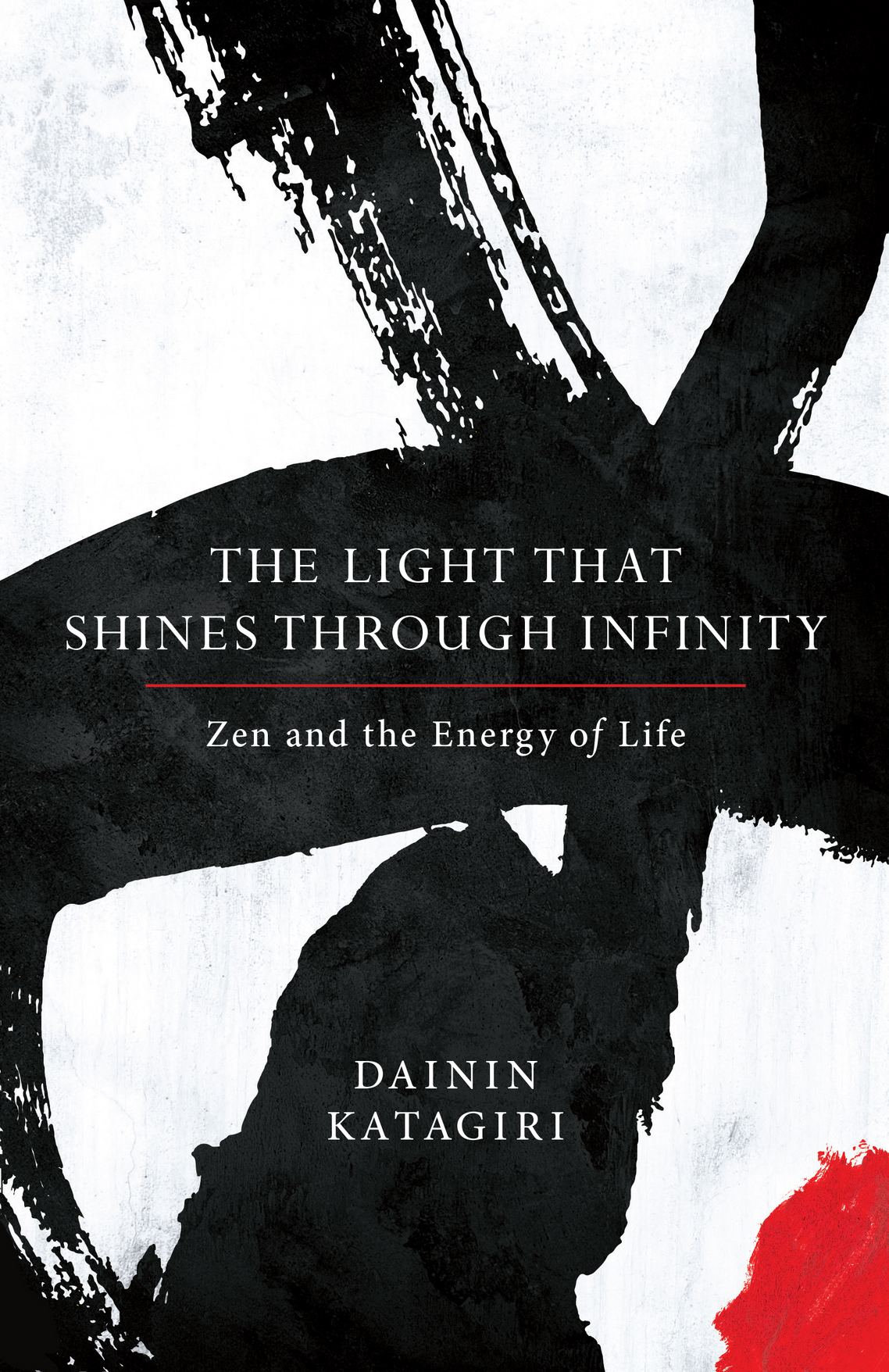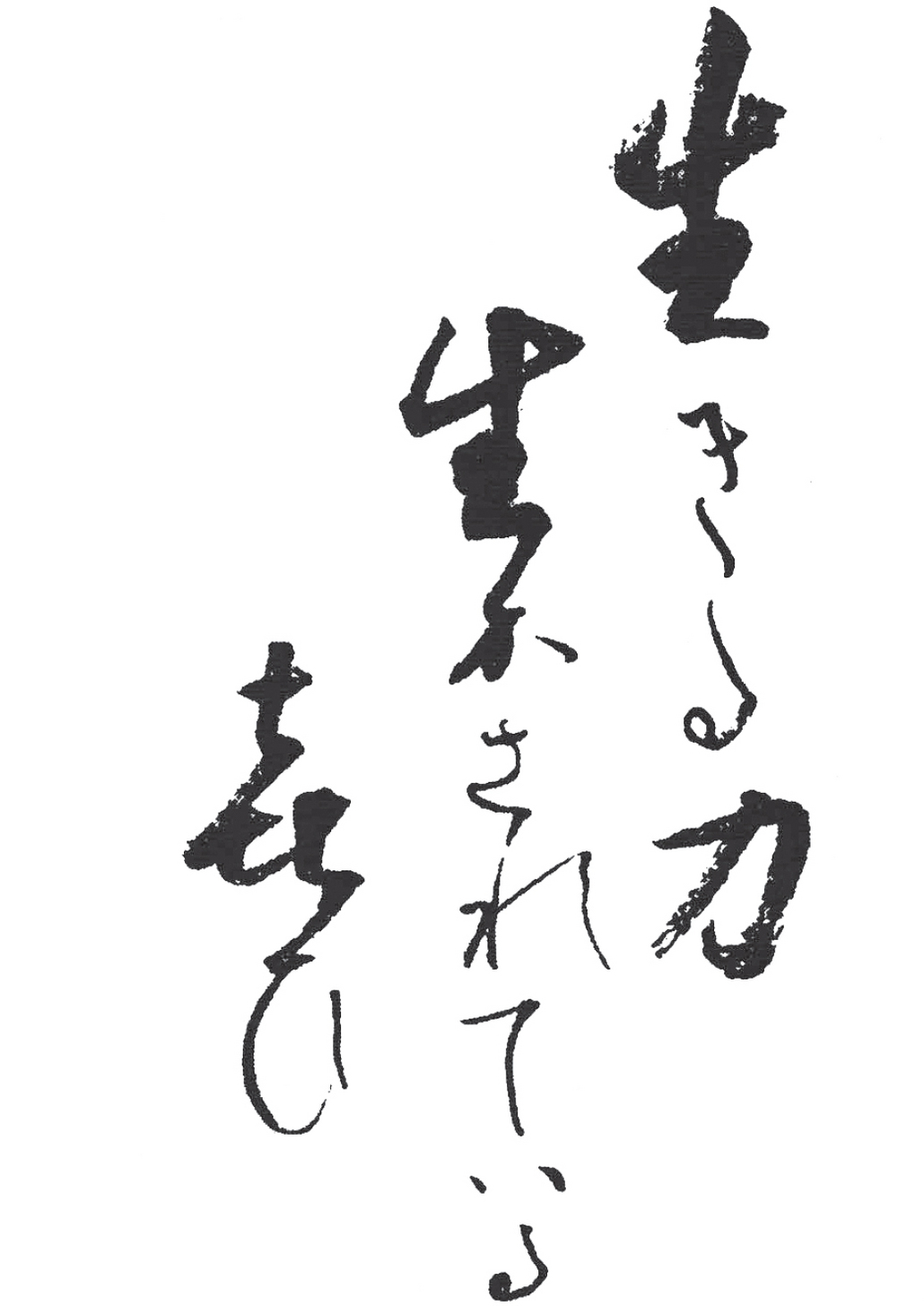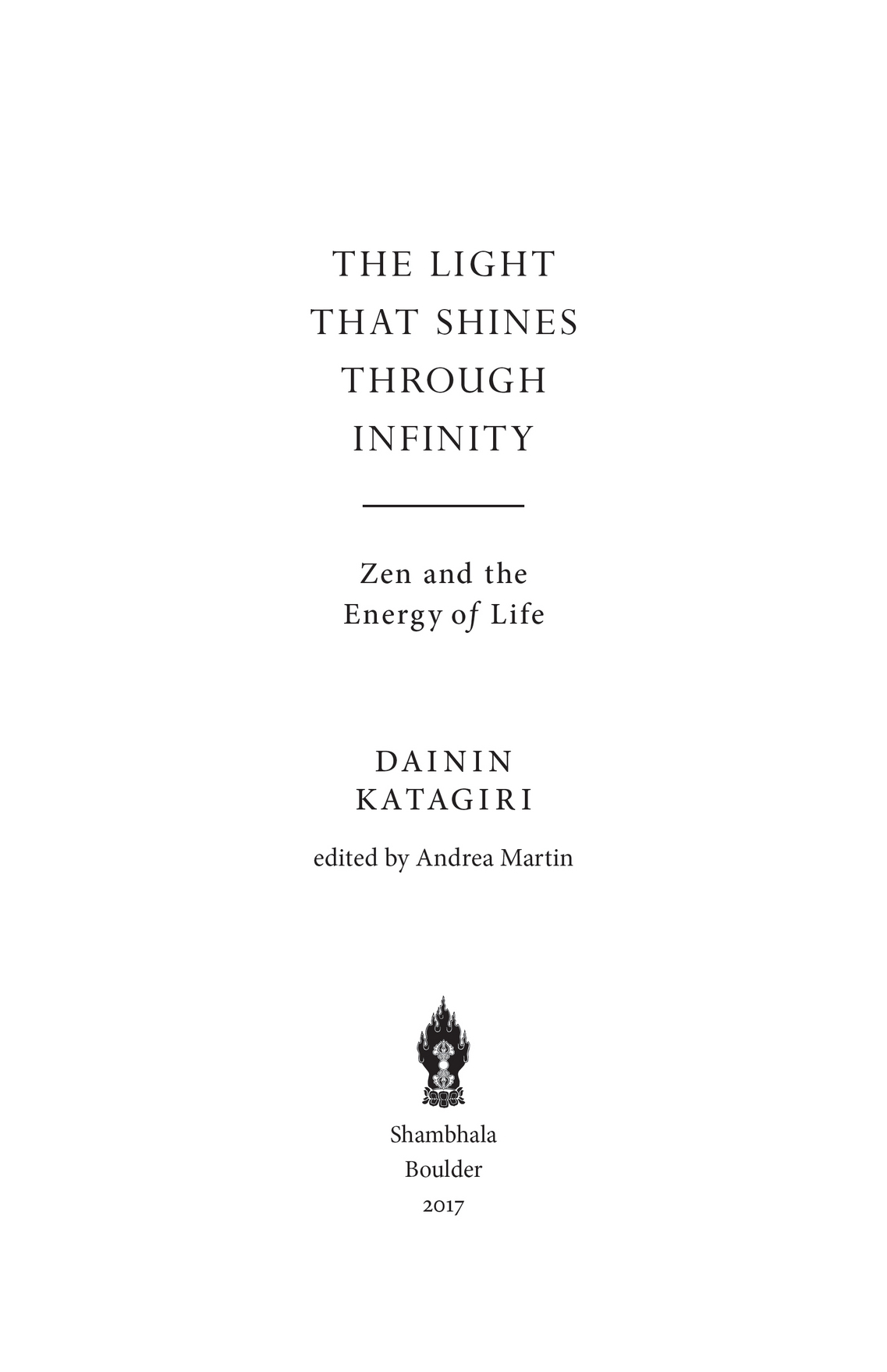Shambhala Publications, Inc.
All rights reserved. No part of this book may be reproduced in any form or by any means, electronic or mechanical, including photocopying, recording, or by any information storage and retrieval system, without permission in writing from the publisher.
Cover art: Beliavskii Igor/Shutterstock, komkrit Preechachanwate/Shutterstock, Eky Studio/Shutterstock.
Names: Katagiri, Dainin, 19281990, author. | Martin, Andrea, 1948 editor.
Title: The light that shines through infinity: Zen and the energy of life / Dainin Katagiri; edited by Andrea Martin.
Description: First edition. | Boulder: Shambhala, 2017. | Includes bibliographical references and index.
EDITORS PREFACE
DAININ KATAGIRI was good at figuring out how things work, so he might have become a scientist or engineer. But when he was eighteen, he left behind his work on diesel engines and became a Zen priest. Then, through Buddhist study and spiritual practice, he investigated how the universe works.
Something that works is using energy. From ancient times, people in the East have developed spiritual, medical, and martial art traditions based on the flow of universal energy as the life force called chi, qi, or ki. In medieval Japan, the great Zen master Eihei Dogen used the term total dynamic working (zenki). In recent times, Katagiri Roshi marveled at the rhythm of life and observed that understanding how it functions can help us to live in harmony with life.
Buddhism may be approached as philosophy, psychology, religion, spiritual pathany or all of these. Katagiri Roshi also saw it as something akin to a science of reality. He often said: I am not talking about an idea; I am talking about something real. The creative energy of life is working from moment to moment, and it includes us, so we can experience it, enjoy it, and use it as a beneficial force. That is Katagiri Roshis main message in this book.
Katagiri Roshi moved from Japan to the United States in the 1960s and then taught here until his death in 1990. Adapting to life in America, where he was no longer fully Eastern yet never fully Western, he developed a unique, lively, and often lyrical way of expressing himself that bridged two worlds and drew many followers. His warm presence and dignified confidence in Zen practice inspired many people to study Buddhism with him.
But to study with Katagiri Roshi required a willingness to dive deep below the surface of Buddhism and into a bewildering world where things didnt always seem to make sense. While editing his talks for this book, I formulated two shortcuts for finding my way through difficult technical terms and philosophical discourses: Buddhism is a creation story, and Buddhism is a love story. These two principles gave me a place to rest my mind and heart when his teaching was complicated.
His teaching can be complicated, but Katagiri Roshi sometimes condenses it into memorable mottos. Three of my favorites in this book are: Relax your frontal lobe!Let the flower of your life force bloom! and Walk together hand in hand! These pithy exhortations cut right through my struggles with life. They cue me to stop fretting and take refuge in the energy at the heart of life. They also show me how to engage with emptiness, interdependent co-origination, and all sentient beings as three aspects of one cosmic energy system. When I put them together, I find the triple treasure of Buddhism: Buddha, dharma, and sangha.
Many of the talks that I chose for this book reflect Katagiri Roshis love of reading and reflecting on Buddhist writings. He once said, Sometimes I am alone in my study, just thinking, contemplating Buddhas teaching without doing anythingjust sitting there. That is the thing that makes me relax and feel joyful.
The quotes and excerpts from Buddhist writings that Katagiri Roshi comments on here are variously his own translations, other published translations, or recollections from memory. When he didnt indicate the source, I did my best to identify any that were taken from published translations, and then I inserted the translators names into the text. These mentions refer you to the bibliography at the end of this book, where you can find those publications along with some other resources that have been helpful to me.
The title of this book is inspired by something in Eihei Dogens Shobogenzo Kuge (Flowers in the Sky). Dogen quotes a wonderful statement that a student of the Chinese Zen master Sekiso Keisho (Shishuang Qingzhu, 807888) made when he awakened to reality. Here is Thomas Clearys translation (1986): Light shines silently throughout infinity. In science and in spiritual life, light is a way of transmitting energy through space. We constantly receive that energy. Thats why spiritual teachers always tell us that we are already enlightened.
When we actually experience the energy that flows through everything, life makes sense and contentment appears. For this, Katagiri Roshi recommends zazen, seated Zen meditation, as an essential spiritual practice. So Id like to say something about meditation before turning you over to Katagiri Roshis teachings.
The human mind is a wonderful storyteller, constantly weaving narratives about ourselves and our lives from threads of thought, emotion, and sensation. This aspect of mind is useful, but it never tells us the whole story. Meditation lets us witness the stories we tell ourselves. We see how our busy mind works, how it limits and controls us, and then we calmly step aside from it. When you step aside and let go of your story, you create a space. The space between your story and your life is the place where you discover the deeper nature of human life.
In zazen, we sit up in a straight posture, let our thoughts pass by, and pay concentrated attention to our natural breathing. The English word spirit comes from the Latin spirare, to breathe. In yoga practice the Sanskrit word prana represents the breath of life or the cosmic energy of the life force. That energy is already yours, so welcome it into your awareness. Tuning in to the universal life force lets you see yourself in a different way: you belong to the flow of life. That realization brings relief and joy. It also changes your way of thinking about your life and guides you to live in a beneficial way, giving wisdom and compassion to yourself and others.


